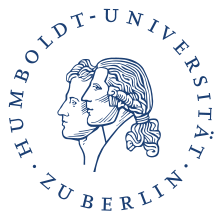Humboldt University of Berlin

Humboldt University of Berlin is a public research university in the central borough of Mitte in Berlin, Germany. It has been conferred the title of "University of Excellence" under the German Universities Excellence Initiative.
The history of Humboldt University of Berlin can be traced back to the early 19th century, when the Prussian statesman and philosopher Wilhelm von Humboldt envisioned a new type of university. Humboldt wanted to create a university where scholars would be free to pursue their own research interests and to teach students in a way that would inspire them to think critically and independently.
In 1809, King Friedrich Wilhelm III of Prussia granted Humboldt permission to establish a new university in Berlin. The university, which was originally named after Frederick William III, opened its doors to students in 1810.
In the 19th century, Humboldt University made significant contributions to a wide range of fields, including philosophy, history, law, medicine, and the natural sciences.
In the early 20th century, Humboldt University continued to be a center of academic excellence. However, the university was also affected by the political turmoil of the time. During the Nazi era, many Jewish and liberal scholars were expelled from the university. After World War II, Humboldt University was located in the Soviet sector of Berlin. During this period, the university was subject to communist ideology and censorship.
After the fall of the Berlin Wall in 1989, Humboldt University regained its academic independence. The university has since undergone a major transformation, and it is now one of the leading research universities in Germany.
Humboldt University is a vibrant and exciting place to study and research. It is located in the heart of Berlin, one of the most cosmopolitan and dynamic cities in the world. The university offers students a unique opportunity to learn from and collaborate with some of the leading scholars and scientists in their fields.
Based on the QS World University Rankings of 2025, Humboldt University of Berlin is positioned as the #126 top university in the world, which makes it the #7 top university in Germany. The university's global rank decreased by 6 points from last year.
University Profile
Get a quick snapshot of the university's key details.
| 2025 Ranking | #7 |
|---|---|
| University Name | Humboldt University of Berlin |
| Name in Local Language | Humboldt-Universität zu Berlin |
| Acronym | HU |
| Year Established | 1810 |
Location
The university is located in Berlin. Find the address and map of the university below.
| Address | Unter den Linden 6, Berlin, Germany |
|---|---|
Contact
Connect with the university easily! Find their contact details.
| Phone | +49 (30) 20930 |
|---|---|
| Fax | +49 (30) 2093 2729 |
| Website |

|
| More Links |
Admission Info
Find information below on admission to Humboldt University of Berlin.
| Accepts International Students | Yes |
|---|---|
| Student Body | Men and Women |
| Admission Info | Click here |
Scholarship and Financial Aids
Click on the following links to get information on scholarships and/or financial aids offered by Humboldt University of Berlin.
| Scholarship Info | Click here |
|---|
Programs and Courses
Get a quick overview of programs and courses offered at this university.
| Bachelor's Degrees | Master's Degrees | Doctorate Degrees | Diplomas | |
|---|---|---|---|---|
| Arts & Humanities | n/a | |||
| Business & Social Sciences | n/a | |||
| Engineering | n/a | n/a | n/a | |
| Language & Cultural Studies | n/a | |||
| Medicine & Health | n/a | |||
| Science & Technology | n/a |
Click on the following button to explore a detailed list of programs and courses of this institute.
View Course ListRanking History
The following chart shows how the ranking of this university in Germany has changed over the last 5 years.
Related Articles
Stay informed with the following article related to the university or higher education in Germany.
